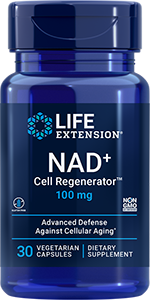|
Tuesday, March 15, 2016
An article published online on February 10, 2016 in the American Journal of Clinical Nutrition reports an association between a higher Dietary Inflammatory Index (DII) score and a significantly increased risk of mortality from cardiovascular disease and cancer over a median of 12.4 years.
The current investigation included 8,089 men and women enrolled in the Supplémentation en Vitamines et Minéraux Antioxydants (SU.VI.MAX) study which compared the effects of a placebo to supplementation with ascorbic acid, vitamin E, beta-carotene, selenium, and zinc from 1994 to 2002. Participants' dietary records were utilized to calculate each subject's Dietary Inflammatory Index score, which rates total calories, carbohydrates and other components as proinflammatory, and such items as monounsaturated and polyunsaturated fatty acids, vitamins, and other nutrients as anti-inflammatory factors.
Over a 12.4 year median, 41 deaths caused by cardiovascular disease, 123 cancer deaths and 43 deaths due to other causes occurred. Participants whose Dietary Inflammatory Index scores were among the top one-third of subjects had a risk of dying from cancer or cardiovascular disease that was 53% higher than those whose scores were among the lowest third. For cancer alone, the risk of death was 83% higher in the highest DII group. Subjects in the placebo group whose scores were among the top third had over twice the risk of death from all causes over follow-up compared to those whose scores were among the lowest third, however this effect was not observed among those who received antioxidant supplements.
"To our knowledge, this study was the first to investigate the prospective association between the DII and mortality in a large population-based French cohort including both men and women," authors Laurie Graffouillère and colleagues announce. "In line with results from laboratory studies, our findings suggest that antioxidants may contribute to counteract some of the potential deleterious effects of a proinflammatory diet on mortality." |
|














